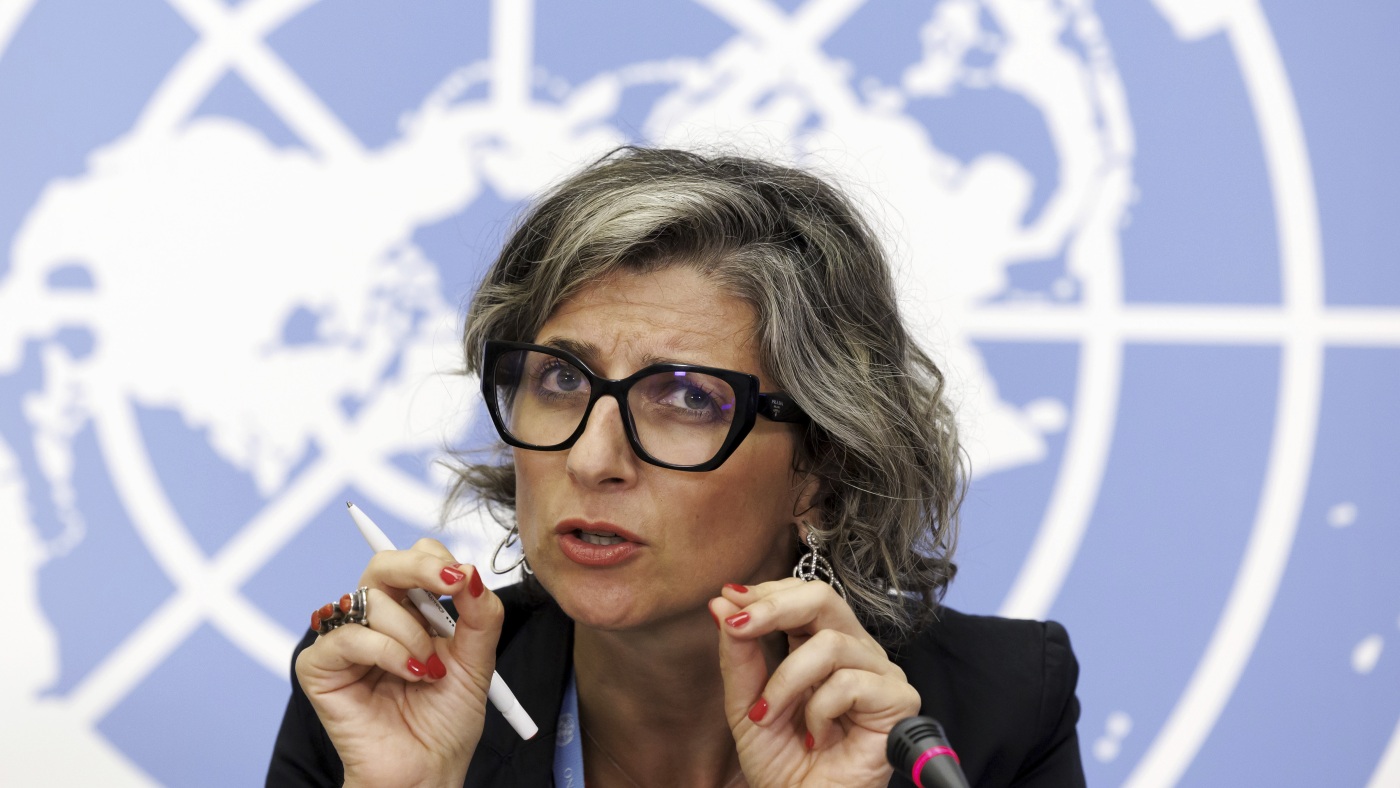UNITED NATIONS — In a significant diplomatic move, the Trump administration announced on Wednesday the imposition of sanctions against Francesca Albanese, a United Nations investigator tasked with examining human rights abuses in the Palestinian territories. This action marks the latest effort by the United States to counter critics of Israel’s ongoing military operations in Gaza.
The U.S. State Department’s decision to sanction Albanese, the U.N. special rapporteur for the West Bank and Gaza, follows a failed attempt to pressure the international body to remove her from her position. The timing coincides with Israeli Prime Minister Benjamin Netanyahu’s visit to Washington, where discussions with President Donald Trump and other officials are set to address the conflict in Gaza and broader regional issues.
The practical implications of the sanctions remain uncertain, particularly concerning Albanese’s ability to travel to the United States under diplomatic credentials. Albanese, an Italian human rights lawyer, has been outspoken in her characterization of Israel’s actions in Gaza as “genocide,” a claim strongly denied by both Israel and the U.S., which is a key military ally of Israel.
Background and Context
The Trump administration’s sanctions against Albanese are part of a broader pattern of actions aimed at defending Israel against international criticism. The U.S. had previously refrained from directly addressing concerns with Albanese due to its withdrawal from the U.N. Human Rights Council earlier this year, which meant it did not participate in recent council sessions.
Albanese has been active in urging global powers to exert pressure on Israel, including through sanctions, to halt its military actions in Gaza. Her advocacy extends to supporting the International Criminal Court’s arrest warrants against Israeli officials, including Netanyahu, for alleged war crimes. In her recent report, she named several U.S. companies as complicit in what she described as Israel’s occupation and military actions in Gaza.
“Albanese’s campaign of political and economic warfare against the United States and Israel will no longer be tolerated,” Secretary of State Marco Rubio stated on social media. “We will always stand by our partners in their right to self-defense.”
Reactions and Implications
Liz Evenson, international justice director at Human Rights Watch, criticized the U.S. government’s decision, arguing that the sanctions aim to silence a U.N. expert for fulfilling her mandate. “The United States is working to dismantle the norms and institutions on which survivors of grave abuses rely,” Evenson remarked, urging U.N. and ICC member countries to resist the U.S. actions and condemn the sanctions on Albanese.
Albanese’s July 1 report highlighted the involvement of Western defense companies in supplying arms used by Israel’s military and identified other industries, including shipping, real estate, technology, and finance, as benefiting from the conflict.
“While life in Gaza is being obliterated and the West Bank is under escalating assault, this report shows why Israel’s genocide continues: because it is lucrative for many,” Albanese’s report asserted.
Israel’s diplomatic mission in Geneva dismissed Albanese’s report as “legally groundless” and accused her of abusing her office. The U.S. mission to the U.N. echoed these sentiments, labeling her allegations of genocide and apartheid as “false and offensive.”
Historical Parallels and Future Outlook
The sanctions against Albanese reflect a continuation of the Trump administration’s strategy to suppress criticism of Israel’s military actions. Earlier this year, the administration targeted pro-Palestinian activists in the U.S., including students and faculty, for participating in demonstrations.
The conflict between Israel and Hamas, which began on October 7, 2023, has resulted in significant casualties. Hamas-led militants initiated the conflict with an attack on Israel, leading to a retaliatory campaign by Israel that has claimed over 57,000 Palestinian lives, according to Gaza’s Health Ministry. The humanitarian situation remains dire, with the majority of Gaza’s 2.3 million residents displaced and medical facilities overwhelmed.
“We must stop this genocide, whose short-term goal is completing the ethnic cleansing of Palestine, while also profiteering from the killing machine devised to perform it,” Albanese stated in a recent post on social media. “No one is safe until everyone is safe.”
As the international community grapples with the ongoing conflict, the U.S. sanctions against Albanese are likely to further polarize opinions and complicate diplomatic efforts. The situation underscores the challenges of balancing national interests with human rights advocacy in a highly volatile region.
The U.N.’s response to the sanctions remains to be seen, as does the potential impact on Albanese’s work and the broader international discourse on the Gaza conflict.





































































